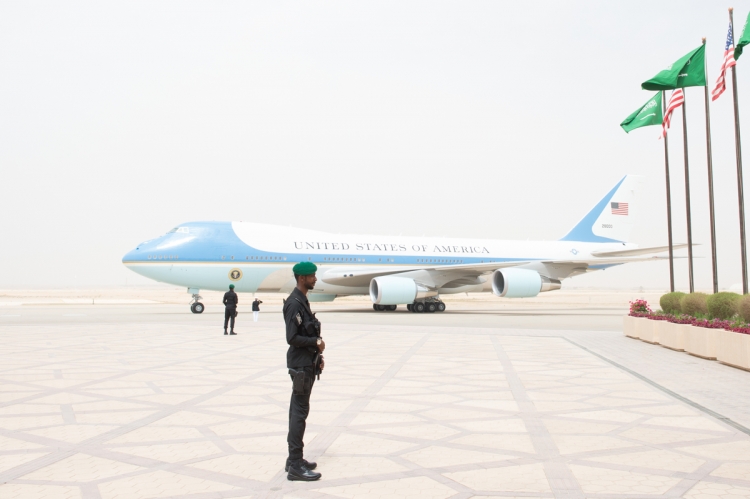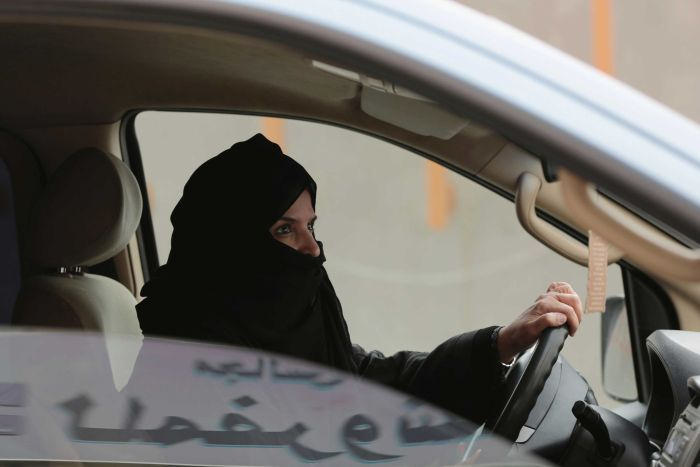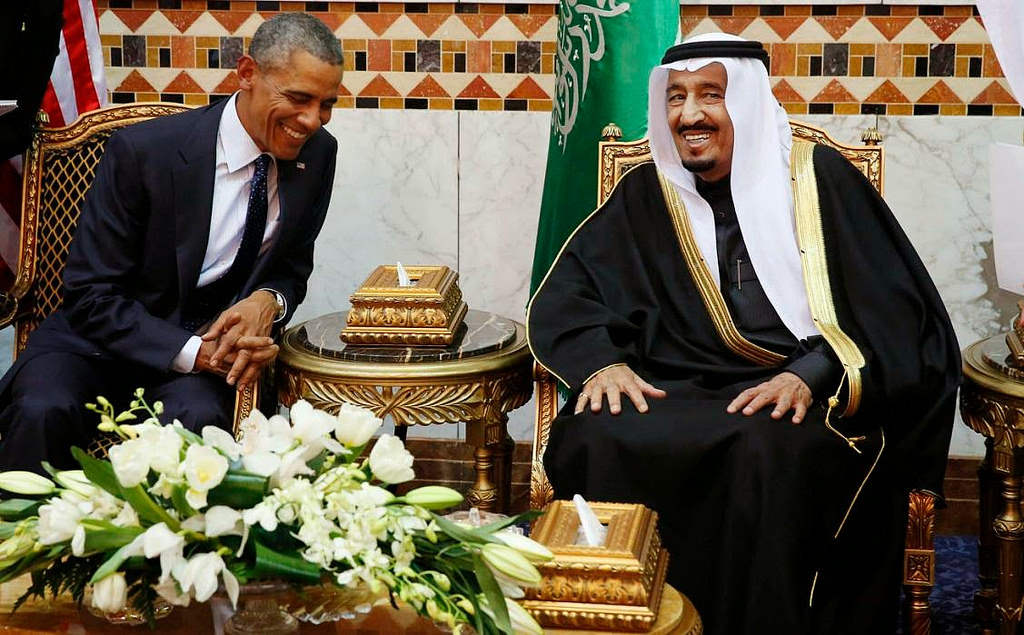Saudi Arabia and Western Hypocrisy

Last month Saudi Arabia made provisions in its law to allow women to drive for the first time in the country's history. It seemed like major progress in a country where, previously, women were not permitted to acquire the necessary identification that would allow them to operate a vehicle.
That reform followed Saudi Arabia's election in April to a four-year term on the United Nations Women's Rights Commission. The socially repressive monarchy was elected to the commission with the help of supporting votes of a wide variety of democratic nations, including Australia, Belgium, France, Germany, Ireland, Italy, Japan, Norway, South Korea, Spain, Sweden, the United Kingdom and the United States.
This is the latest and most prominent example of the hypocrisy of the West's policy towards Saudi Arabia. Nations that have actively and loudly promoted social liberalism throughout the world have routinely provided exceptions, or held their tongues, when it comes to the internal policies of Saudi Arabia's fundamentalist monarchy. The United States, for example, has often castigated countries such as Iran and China for their human rights abuses and failure to provide equal standards for their citizens. And yet, one of its main strategic allies, Saudi Arabia, has made provisions in its laws that require women to acquire permission from male family members for decisions such as marriage and travel, as well as maintaining a justice system that administers corporal punishment and executions (including beheading and crucifixion) for “crimes” such as participating in pro-democracy protests and being homosexual.
One wonders why nations that so often condemn the abuses and excesses of other states, remain silent in the face of well-documented reports of human rights violations routinely emerging from Saudi Arabia.
 Image Credit: Flickr/BipHooCompany
Image Credit: Flickr/BipHooCompany
The relationship between the United States and Saudi Arabia has long been built on a foundation of mutually beneficial economic and security interests. For generations, the economy of the United States has benefited from a partnership that has enabled relatively inexpensive oil imports. In exchange, Saudi Arabia has purchased American military equipment in order to maintain their security, regional authority and engage in proxy wars with their primary contemporary opponent in the region, Iran. Since this alliance between the two nations was formally established during the 1950s, the United States has consistently refrained from pushing its regional ally towards opening its socially repressive laws, as well as from publicly criticizing the monarchy for its numerous violations of international humanitarian law.
 Image Credit: Flickr/JeanBosco
Image Credit: Flickr/JeanBosco
Even excepting the well-documented violations of International Human Rights, Saudi Arabia has consistently exported Wahhabist Islamic ideology throughout the rest of the Middle East and the West. This is the same ideology that has been used to justify violent actions, as well as the funding of terrorist organizations. In effect, some of the money that has been used to purchase oil and supplies from the Saudi Kingdom has been, in turn, used by Saudi nationals to fund organizations that carry out attacks on western institutions and people. This is especially troubling and intractable issue because the Kingdom of Saudi Arabia relies on their Wahhabist ideology to maintain their political authority.
As a fundamentalist religious monarchy, Saudi Arabia depends upon its religious authority for its domestic political legitimacy. Because of this, it is not possible for the leaders of the monarchy to make significant liberalization of social policies without making themselves vulnerable to more conservative political opponents who take for themselves the mantle of religious authority by virtue of their more extreme beliefs. This domestic dynamic has been one of the primary political obstacles that prevents the leaders of Saudi Arabia from making significant progress in addressing these long-standing issues. The same Wahhabist ideology that has been used to justify terrorism, is an essential domestic political tool for the leaders of the Saudi government.
For the most part, an (unofficial) policy of maintaining the long-standing status quo relationship with Saudi Arabia has enjoyed bipartisan support in United States politics. Few western politicians have shown a willingness to push against the popular silence on the issue of Saudi Arabian human rights abuses. Recently, certain leftist politicians in the West have provided an alternative vision for a foreign policy in the middle-east. U.S. Senator Bernie Sanders, in an interview with The Intercept, seemed to suggest that a regional realignment was in order: “I think that one of the areas that we have got to rethink, in terms of American foreign policy, is our position vis-à-vis Iran and Saudi Arabia.”
When asked point blank whether Saudi Arabia is an ally to the United States in the “War on Terror,” the senator from Vermont responded: “Do I consider them an ally? I consider them to be an undemocratic country that has supported terrorism around the world, it has funded terrorism, so I can’t … No, they are not an ally of the United States.”
Sanders went on to elucidate his opinion regarding the United States strategic alignments in the region: “For whatever reason — and I think we know some of the reasons having to do with a three-letter word called oil — the United States has kind of looked aside at the fact that Saudi Arabia is an incredibly anti-democratic country and has played a very bad role internationally, but we have sided with them time and time and time again, and yet Iran, which just held elections, Iran whose young people really want to reach out to the West, we are … continuing to put them down.”
Sanders also notes that he has “legitimate concerns … about Iran’s foreign policy” while simultaneously endorsing a more “even-handed” approach to the regional conflict between Iran and Saudi Arabia. He is not alone on the modern left in his criticism of Saudi Arabian policy. Jeremy Corbyn, the current leader of the Labour Party in the United Kingdom, has denounced the Saudi Arabian offensive against Houthi rebels in Yemen as “cruel”, and has called for an end to the sale of military equipment to the kingdom.
The United States and its democratic allies across the globe must either end their silence and tolerance of human rights abuse and work to hold their allies, and themselves, to the standards to which they aspire, or relinquish democracy's languishing claim to the moral high ground.







